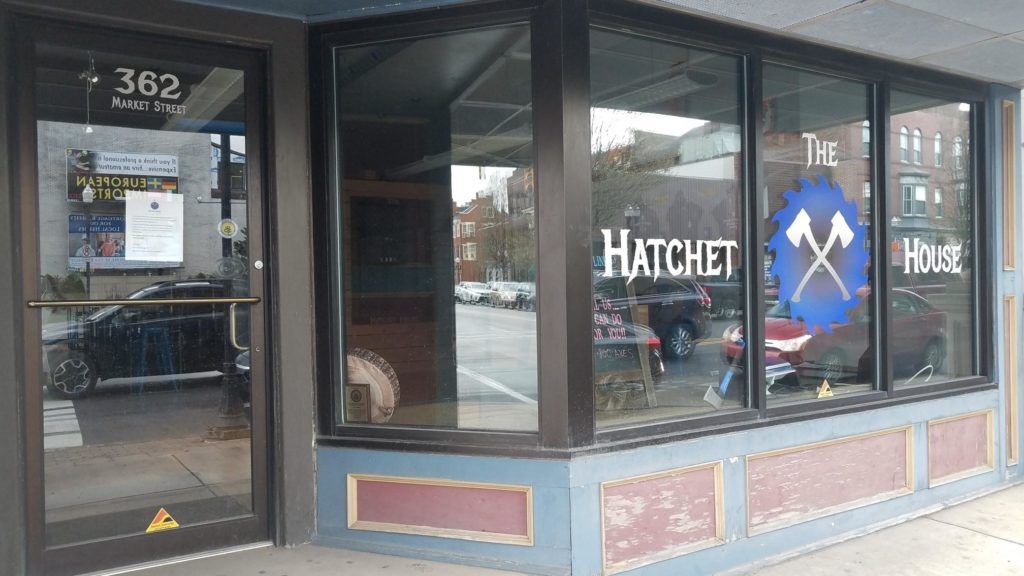
Small businesses now have access to $500 billion in funds from the federal government, but are some micro-businesses going to be left behind during the loan process?
It’s been just over two weeks since many small businesses were mandated to close their doors and shutter their windows as fears of COVID-19 continue to grow. Most recently, Gov. Tom Wolf extended the closure of non-life sustaining businesses indefinitely, saying “right now, it isn’t safe.”
As revenue continues to dwindle, businesses are feeling the cash crunch, many laying off employees and reducing spending as much as possible.
Congress passed, and President Donald Trump signed, the Coronavirus Aid, Relief and Economic Security (CARES) Act on Friday, funneling $2.2 trillion back into the economy.
The emergency funding is an effort to provide some relief to businesses and individuals, according to U.S. Rep. Fred Keller, of the 12th Congressional District.
“The way this works is that we get people working,” Keller said. “We’re all very optimistic that we will be able to get through this very quickly.”
‘The heartbeat of our communities’
But can small businesses afford to take on loans? Many were on a shoe-string budget before the novel coronavirus hit the United States and adding loan payments is a big investment, according to Steve Brady, executive director of the Covation Center, a co-working space for small businesses in the region.
Brady advocated for grants, instead of loans, to help businesses get back on their feet with “as few strings attached.”
Through its state-funded Engage program, the Covation Center has called over 250 local small businesses since the shutdown to ask them how the economic crisis is affecting them. With fixed bills like rent and utilities that continue to come due, businesses eat into their reserves and are starting to see more of a cash crunch, Brady said.
“Micro-businesses that are the heartbeat of our communities will be the last ones to receive benefits,” Brady said.
Many mom and pop businesses, such as caterers, bridal shops, or restaurants pay their monthly bills with their monthly revenue and have very little in reserve, he said. He cautioned that adding extra expenses each month, especially when it’s unclear how long it will take for revenue to equalize, is unwise.
“When you get into recessions and depressions, that’s the last time to borrow money, even from the federal government,” Brady said.
The stimulus package includes $500 billion in loans for small businesses, $350 billion of which can be forgiven should the business meet certain requirements, including retaining all employees, Keller said.
“You can still translate that to loan forgiveness, which in essence would translate that to a grant.,” Keller said. The CARES Act loans have an interest rate that cannot exceed 4%.
To receive loan forgiveness, the funds must only be used for payroll, utilities, mortgage payments or rent and the business must not lay-off employees due to the COVID-19 pandemic.
“The way that this works is that we get more people working,” Keller said. “The best stimulus package for a family is a job.”
‘Considering all the options’
Loan forgiveness is what businesses like Hatchet House, on Market Street, are hoping to receive.
A budding business that was founded about a year ago, the Hatchet House closed its doors and has since had to lay off 15 employees, according to owners Jennifer and Marshall Winters.
“We’re considering all the options,” the Winters said. “Closing has interrupted some very good momentum that we had.”
The business is a recreational location for individuals to gather and throw hatchets. It has grown a great deal over the past year, selling out most Friday and Saturday nights, according to the Winters.
“I think we’re willing to pay a little interest in the hopes that they are forgiven. And if not, we’re only ‘out’ the interest. We still plan to ride this out and keep our business open,” said Jennifer Winters.
But not all businesses have cash reserves to pay the interest in the hopes the loan will be forgiven. Owner of Arthaus Studio, an art gallery, and Graphic Hive, a graphic design company, John Yogodzinski said he won’t try to get a loan for the art gallery.
“Arthaus was hit hardest,” Yogodzinski said, adding he had to postpone a comedy show and the Billtown comedy fest and close the gallery to the general public. “I’m not sure what it is going to do with my schedule moving forward.”
For Yogodzinski, Arthaus is a passion project, but one that has seen a lot of growth in the past year, bringing in international artists and selling out comedy shows on a regular basis.
“For Arthaus, a grant would be much better as I never know if any income will come from what we offer the community. When running a gallery it is easy to get over your head with debt,” he said.
For Graphic Hive, Yogodzinski is more optimistic. He is exclusively taking orders online, however there has been a dip in sales as many local events and sports games were cancelled or postponed. But he added he is still not sure if he will take out a loan.
“(For Graphic Hive) My main concern is I was looking to the Small Business Association for an expansion plan and am not sure if applying for those puts that project in limbo or not,” Yogodzinski said.
A reopen date for businesses has yet to be set, and nationally the government’s guidelines for social distancing have been stretched through the end of April. Business owners continue to worry about the future of their stores and wonder if things will ever be able to go back to the way they were.
“I’m just worried about how long it will take for things to get back to normal,” Yogodzinski said. “Like, even if COVID-19 was gone tomorrow, how long will it take to convince people to go out and enjoy art and events?”





